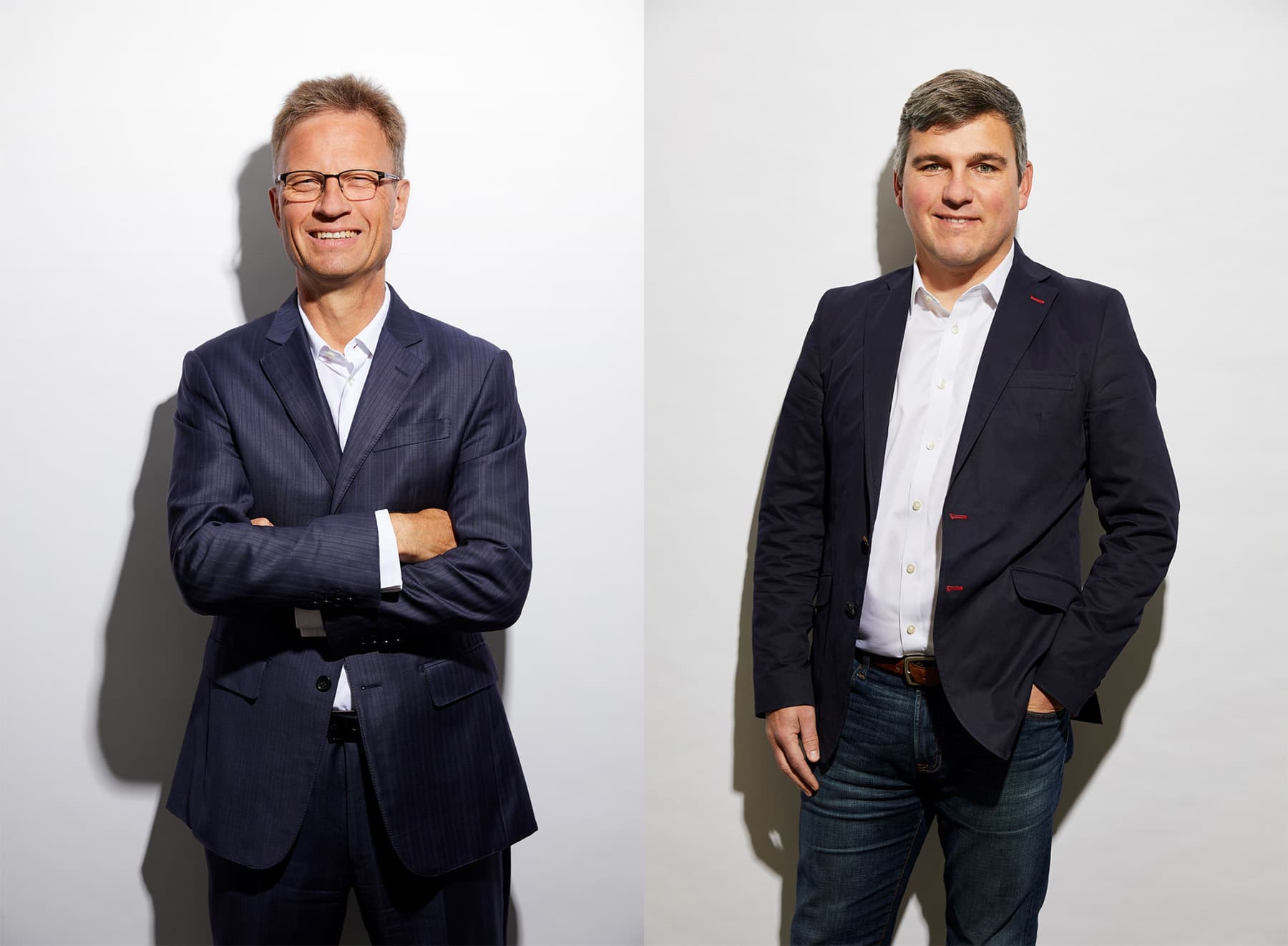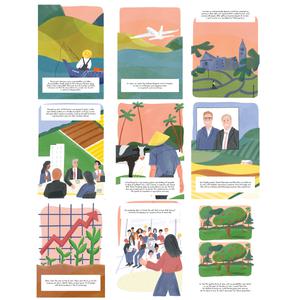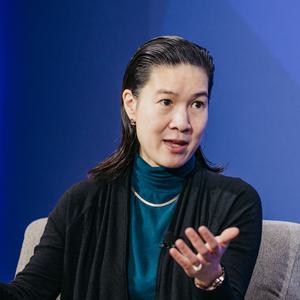On August 9, 2021, the United Nation‚Äôs Intergovernmental Panel on Climate Change (IPCC) released its of the trajectory of Earth‚Äôs climate and the potential implications across the planet. One of ƒ¢πΩ ”∆µAPP‚Äôs primary areas of work is sustainability and discovering science and creating companies to address challenges to the environment, agriculture, and nutrition. Flagship Executive Partner Robert Berendes and General Partner Ignacio Martinez both play leading roles in Flagship‚Äôs sustainability portfolio. In the following Q&A, they share their thoughts on what the IPCC report means for agriculture and our food systems, and the tools and technologies that can make a difference.

"This report should serve as a call for urgent action by all stakeholders involved: public and private sectors, big corporations, citizens, and others. We can see with increasingly clarity what is going to happen to our planet if we don’t act now in impactful ways."
What are your main takeaways from the IPCC report?
Ignacio Martinez: The main takeaway is the sense of urgency: we are running out of time. The IPCC report and others of its kind have essentially said the same thing for quite a long time but with an increasing sense of urgency as well as confidence due to the better tools and models we are developing to more precisely quantify and measure the impact of our actions. And our planet is also giving us very clear signals including regular extreme weather events, increased global surface temperature, and oceanic changes. This report should serve as a call for urgent action by all stakeholders involved: public and private sectors, big corporations, citizens, and others. We can see with increasingly clarity what is going to happen to our planet if we don’t act now in impactful ways.
A second takeaway is that the incredible pace at which we developed effective vaccines against Covid-19 serves up many lessons that we can draw upon in how we address climate change. We have demonstrated that when faced with an urgent threat we have the capacity to innovate, mobilize, and collaborate to quickly develop pioneering technology and innovation, deploy it to market rapidly, and with favorable regulatory frameworks to make a significant impact as soon as possible.

With the prospect of global warming crossing a crucial temperature threshold as early as 2030, what are the agricultural and biological technologies that we already know work to protect crops and global food supply, but need to scale?
IM: There are a number of technologies that we already know can have an impact including:
- Efficacious biological products to replace chemicals and be more precise in when, where, and how we apply them during the growing season.
- Digital agriculture technologies based in robust science to scale solutions like quantification of carbon in a more scalable, cheaper, and precise way
- Better sources of alternative proteins so we have access to nutritional products created through plant/insect-based approaches instead of from animal agriculture
Robert Berendes: I would also add breeding by editing seeds to fundamentally enhance plant productivity, make food more nutritious, and enable a truly sustainable global agricultural system.
Where do we need greater innovation when it comes to agriculture technology?
RB: We need to further enhance the consumer connectivity of agricultural technology, both in the livestock and fishing sectors, but also in plant production. Making agricultural production directly accessible by consumers will reap major benefits bridging the urban-rural divide and bringing consumers and farmers together.
What is the role that regenerative agriculture has to play in the next ten years?
RB: Regenerative agriculture has a role to play right now in the type of action that is necessary to address climate change. Our food system is already fragile with 75% of the land on earth degraded and a 200% increase in global drought risk. Regenerative agriculture focuses on creating and maintaining healthy soils and ecosystems which are critical to our ability to grow food and to reduce agriculture’s impact on the planet. Now is the time to scale regenerative agriculture approaches including reducing tillage to help keep carbon stored in the soil and maintain healthy microbial environments; reducing the use of harmful chemicals; using cover crops; and increasing crop diversity. Regenerative agriculture not only makes our food system more resilient, but it also has a suite of other co-benefits that address other aspects of climate change and ecosystem degradation including reduction of carbon emissions, increased nutrition in our food, greater protection from severe events like flood and drought, reduction of damaging inputs into water systems, and an increase in biodiversity.
How can we best innovate to aid farms and farmers adapt to changing conditions?
IM: One of the greatest tools we have to provide to farmers against rapidly changing environmental conditions is supporting their transition to regenerative agriculture. We need to create meaningful incentives for farmers and farming operations to change their practices to focus on healthy soils and ecosystems to realize the benefits and efficiencies for their operations as well as the planet, all while producing more and better food. We also need to partner with them to develop and implement new technologies that both increase their profitability while also allowing their farming operations to become more sustainable. Examples of these types of technologies include microbiome technologies like those produced by to help growers replace fertilizers, herbicides, and other synthetic inputs; ±ı≤‘±π≤πæ±¥«‚Äôs
precise delivery technologies to protecting crop health; as well as digital technologies like those at CiBO
which give farmers access to insights about their land from land value to soil stability to yield forecasts, among others.
“One of the challenges with addressing climate change is that the scale of change required to address it can be hard to grasp both in terms of what alternative futures could look like and what it would take to get there, and do so in a way that creates value. But that mindset and approach is core to what we do at Flagship.”
What is the role of seed diversity in protecting our food system?
IM: Seed diversity is essential to supporting both the diversification and robustness of agriculture, which then contributes to more diverse and nutritious diets, and to a greater diversity of species and varieties within the ecosystem. Seeds are the foundation of agriculture and of our food system and they will be an essential part of the solution to protecting our planet. By developing new seeds, we will be able to use less water, use less fertilizer and chemicals, and be more adaptable to climate variability in different regions in the world. Flagship-founded Inari and its SEEDesignTM platform aim to do just that using predictive design and advanced multiplex gene editing to focus on the world’s largest crop types to improve efficiencies, reduce the impact on the planet, and to increase projected crop yields, which also helps to address food security.
What type of action do you hope this report inspires in the private sector? In the public sector?
IM: There are three priority areas where the private and public sectors can take action following the findings in the IPCC report: 1) more investment to develop pioneering technologies, 2) improved regulatory frameworks to dramatically accelerate the adoption of those technologies, and 3) faster development of policies to incentivize farmers and other stakeholders to adopt regenerative agriculture practices.
What about the Flagship approach of taking unreasonable journeys applies to how we can address and/or adapt to the climate crisis?
RB: Flagship’s process of pioneering requires us to envision alternative futures, to explore what may seem to be unreasonable propositions, and to navigate to transformational outcomes. One of the challenges with addressing climate change is that the scale of change required to address it can be hard to grasp both in terms of what alternative futures could look like and what it would take to get there, and do so in a way that creates value. But that mindset and approach is core to what we do at Flagship. We have demonstrated what is possible when we free ourselves from scientific dogma and existing assumptions about markets and value, to create the types of true breakthrough technologies that are required to solve the urgent and complex challenge of climate change.
Photo credit: FluxFactory for iStock
If you see an error in this story, contact us.
Related Companies
- Inari Agriculture Founded: 2016
- Invaio Sciences Founded: 2017
- Indigo Agriculture Founded: 2013
- CIBO Technologies Founded: 2015





